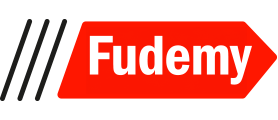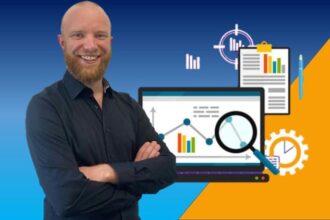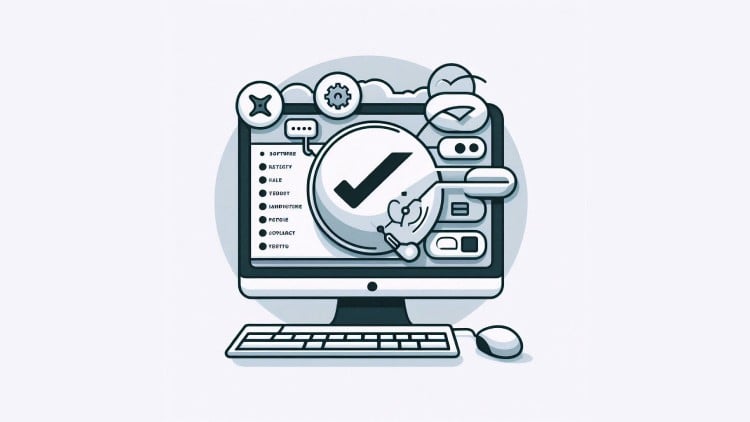What
You’ll Learn
You’ll Learn
- Understand the fundamentals of functional testing
- including its importance
- goals
- and the various types of testing within this domain.
- Effectively plan
- design
- and execute functional tests
- utilizing different test design techniques and developing comprehensive test cases and scenarios.
- Manage the testing process through an understanding of test management tools
- defect life cycles
- risk management
- and test closure activities.
- Apply advanced testing techniques such as exploratory testing
- API testing
- database testing
- security considerations in functional testing
- and performance imp
- Navigate test automation by selecting appropriate tools
- building automation frameworks
- understanding scripting languages
- and managing test data.
- Incorporate Agile and DevOps practices into functional testing with strategies for agile testing
- scrum integration
- continuous testing principles
- TDD/BDD diff
- Stay updated with emerging trends and technologies in the field of functional testing like AI/ML applications
- cloud-based testing
- mobile testing challenges
- I
Requirements
- Our “Comprehensive Functional Testing Interview Questions Practice Test” course is designed to be accessible to a wide range of learners
- from beginners to experienced professionals. While there are no strict prerequisites
- having some foundational knowledge can enhance your learning experience.
Description
Functional Testing Interview Questions and Answers Preparation Practice Test | Freshers to Experienced
Are you preparing for a Functional Testing interview? Do you want to enhance your skills and boost your confidence with real-world scenarios? Look no further! Our course, “Comprehensive Functional Testing Interview Questions Practice Test,” is designed to help you master the essential topics and ace your interviews with ease.
Our course is meticulously crafted to cover every aspect of Functional Testing, ensuring you gain a thorough understanding and can confidently tackle any interview question. Divided into six comprehensive sections, each with six subtopics, this course provides a deep dive into the critical areas of Functional Testing. Whether you are a beginner or an experienced tester, our practice tests will help you polish your skills and get ready for your dream job.
Section 1: Basics of Functional Testing
1. Introduction to Functional Testing
-
What is Functional Testing?
-
Importance of Functional Testing in the software development lifecycle.
-
Goals and objectives of Functional Testing.
2. Types of Functional Testing
-
Unit Testing
-
Integration Testing
-
System Testing
-
Acceptance Testing
-
End-to-End Testing
-
Regression Testing
3. Functional vs. Non-Functional Testing
-
Key differences between Functional and Non-Functional Testing.
-
Examples and scenarios highlighting these differences.
4. Test Planning
-
Steps involved in creating an effective Functional Test Plan.
-
Importance of Test Planning in ensuring thorough coverage.
-
Common pitfalls and how to avoid them.
5. Test Design Techniques
-
Boundary Value Analysis
-
Equivalence Partitioning
-
Decision Table Testing
-
State Transition Testing
-
Use Case Testing
-
Exploratory Testing
6. Test Case Development
-
Writing effective test cases.
-
Developing comprehensive test scenarios and use cases.
-
Best practices for test case documentation.
Section 2: Test Management
1. Test Management Tools
-
Overview of popular Test Management Tools (e.g., JIRA, TestRail).
-
Features and benefits of using Test Management Tools.
-
How to choose the right tool for your project.
2. Test Execution
-
Strategies for effective Test Execution.
-
Scheduling and prioritizing test cases.
-
Handling test execution in different environments.
3. Defect Life Cycle
-
Understanding the Defect Life Cycle.
-
Defect reporting and tracking processes.
-
Effective communication in defect management.
4. Risk Management in Testing
-
Identifying potential risks in testing.
-
Techniques for risk assessment and mitigation.
-
Importance of risk management in ensuring quality.
5. Test Reporting
-
Key elements of a comprehensive test report.
-
How to create meaningful and actionable test reports.
-
Using test reports to drive decision-making.
6. Test Closure Activities
-
Criteria for Test Completion.
-
Post-test activities and their significance.
-
Lessons learned and continuous improvement.
Section 3: Advanced Testing Techniques
1. Exploratory Testing
-
Concepts and benefits of Exploratory Testing.
-
Techniques for effective Exploratory Testing.
-
When and how to use Exploratory Testing.
2. API Testing
-
Introduction to API Testing.
-
Tools and frameworks for API Testing (e.g., Postman, Swagger).
-
Best practices for API Testing.
3. Database Testing
-
Techniques for validating databases.
-
Ensuring data integrity through effective Database Testing.
-
Tools and strategies for Database Testing.
4. Security Testing Basics
-
Introduction to Security Testing.
-
Key concepts and importance of Security Testing.
-
Common vulnerabilities and how to test for them.
5. Performance Testing Considerations
-
Understanding Performance Testing in the context of Functional Testing.
-
Identifying performance bottlenecks.
-
Tools and techniques for Performance Testing.
6. Automation in Functional Testing
-
Benefits of automating Functional Tests.
-
Overview of popular Automation Tools (e.g., Selenium, Cypress).
-
Developing and maintaining automated test scripts.
Section 4: Test Automation
1. Selecting Automation Tools
-
Criteria for selecting the right Automation Tool.
-
Comparison of different Automation Tools.
-
Case studies and examples.
2. Building an Automation Framework
-
Key components of an Automation Framework.
-
Architectures and design patterns for Automation Frameworks.
-
Best practices for developing a robust Automation Framework.
3. Scripting Languages for Test Automation
-
Overview of popular scripting languages (e.g., Python, JavaScript).
-
Advantages and disadvantages of each language.
-
Tips for writing efficient automation scripts.
4. Test Data Management in Automation
-
Importance of Test Data in Automation.
-
Strategies for generating and managing Test Data.
-
Tools and techniques for Test Data Management.
5. Continuous Integration and Continuous Deployment (CI/CD)
-
Role of CI/CD in Test Automation.
-
Setting up CI/CD pipelines for automated testing.
-
Benefits and challenges of CI/CD integration.
6. Challenges in Test Automation
-
Common challenges faced in Test Automation.
-
Strategies to overcome these challenges.
-
Ensuring the success of Automation efforts.
Section 5: Agile and DevOps in Functional Testing
1. Agile Testing Strategies
-
Role of testing in Agile development.
-
Agile testing methodologies and best practices.
-
Collaboration between testers and developers in Agile.
2. Scrum and Testing
-
Integrating testing in the Scrum framework.
-
Importance of continuous testing in Scrum.
-
Techniques for effective Scrum testing.
3. DevOps and Continuous Testing
-
Principles of DevOps and Continuous Testing.
-
Practices for implementing Continuous Testing in DevOps.
-
Benefits of DevOps for Functional Testing.
4. Test-Driven Development (TDD) and Behavior-Driven Development (BDD)
-
Concepts of TDD and BDD.
-
Differences and similarities between TDD and BDD.
-
Implementing TDD and BDD in Functional Testing.
5. Testing in Continuous Delivery
-
Best practices for testing in Continuous Delivery environments.
-
Strategies for ensuring quality in rapid release cycles.
-
Tools and techniques for Continuous Delivery testing.
6. Quality Assurance in Agile and DevOps
-
Ensuring quality in Agile and DevOps practices.
-
Role of QA in Agile and DevOps.
-
Continuous improvement in QA processes.
Section 6: Emerging Trends and Technologies
1. Artificial Intelligence and Machine Learning in Testing
-
Applications of AI and ML in testing.
-
Benefits and challenges of using AI and ML for testing.
-
Future trends in AI and ML for Functional Testing.
2. Cloud-Based Testing
-
Advantages of Cloud-Based Testing.
-
Tools and platforms for Cloud-Based Testing.
-
Best practices for testing in the cloud.
3. Mobile Testing
-
Challenges of Mobile Testing.
-
Strategies for effective Mobile Testing.
-
Tools and frameworks for Mobile Testing.
4. Internet of Things (IoT) Testing
-
Approaches to IoT Testing.
-
Complexity and challenges of IoT Testing.
-
Tools and techniques for IoT Testing.
5. Big Data Testing
-
Understanding Big Data Testing.
-
Techniques for testing large datasets.
-
Tools and frameworks for Big Data Testing.
6. Virtual Reality (VR) and Augmented Reality (AR) Testing
-
Testing in immersive environments.
-
Strategies for VR and AR Testing.
-
Tools and techniques for VR and AR Testing.
Get Started Today!
Don’t miss this opportunity to enhance your skills and advance your career. Enroll now in our “Comprehensive Functional Testing Interview Questions Practice Test” course and take the first step towards acing your next interview!
Who this course is for:
- Aspiring IT professionals who are looking to break into the field of software testing and want to get a head start on functional testing concepts.
- Experienced testers seeking to deepen their knowledge of functional testing and stay updated with the latest trends and technologies.
- Software developers who wish to understand the testing perspective to improve their coding quality and work more effectively with testers.
- Quality Assurance specialists aiming to enhance their test management and execution skills
- as well as learn advanced testing techniques.
- Project managers and team leads in the IT industry who need to oversee testing activities and ensure their teams are up-to-date with current testing practices.
- Students and recent graduates in computer science or related fields who want to add practical testing skills to their theoretical knowledge base.
- Anyone preparing for job interviews related to software testing
- as this course provides a solid foundation of practice questions that reflect real-world scenarios.






